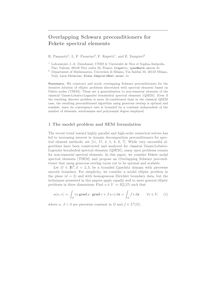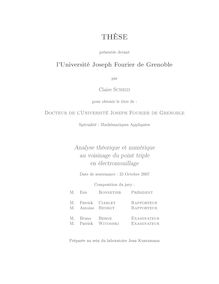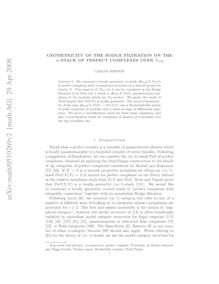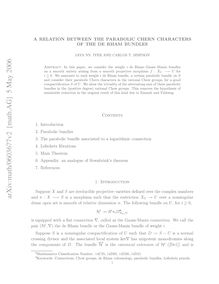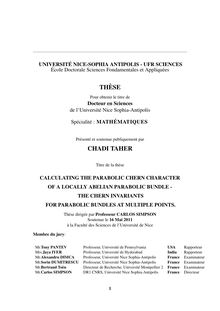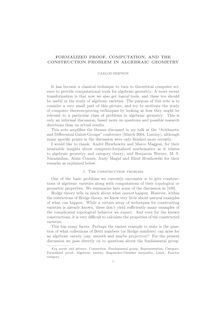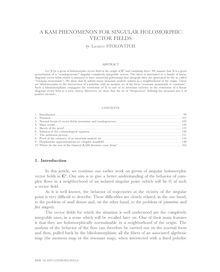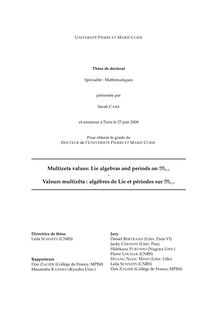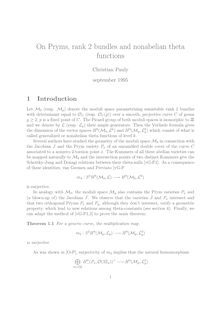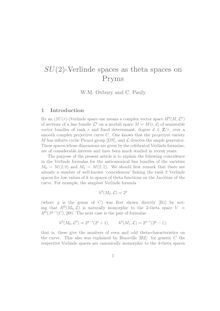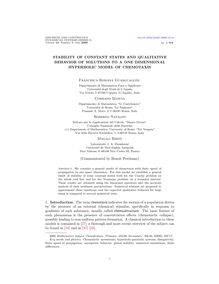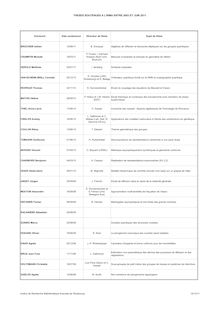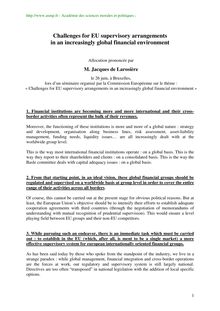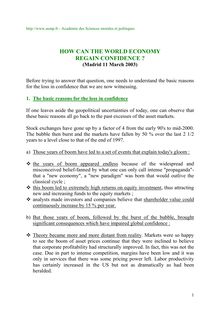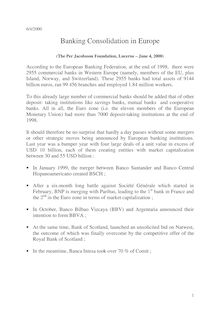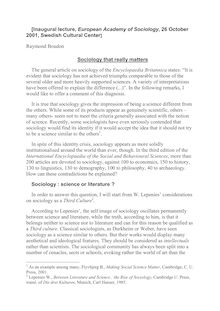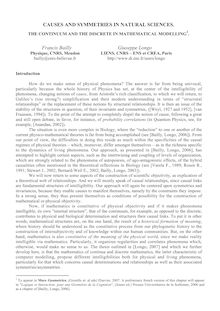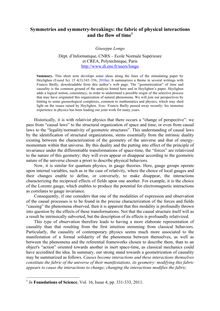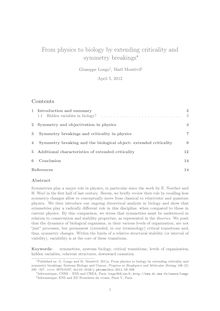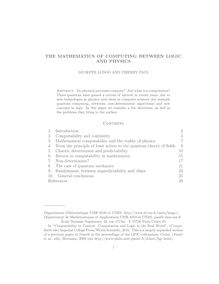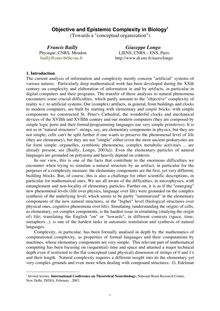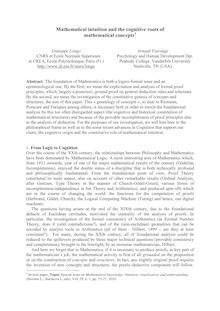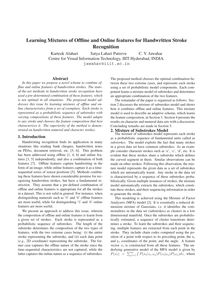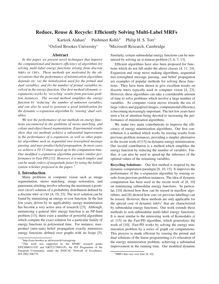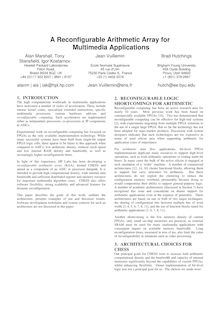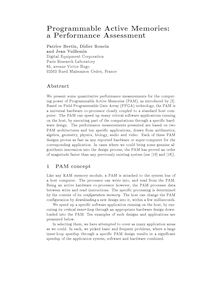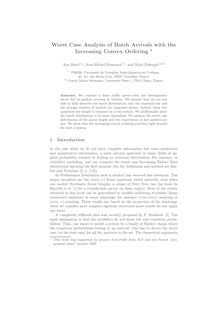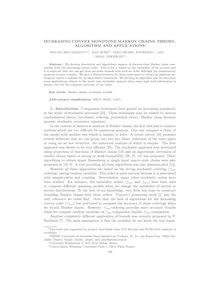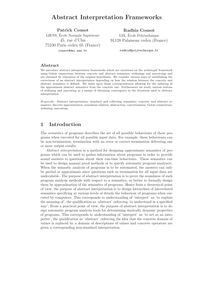-
 Univers
Univers
-
 Ebooks
Ebooks
-
 Livres audio
Livres audio
-
 Presse
Presse
-
 Podcasts
Podcasts
-
 BD
BD
-
 Documents
Documents
-
- Cours
- Révisions
- Ressources pédagogiques
- Sciences de l’éducation
- Manuels scolaires
- Langues
- Travaux de classe
- Annales de BEP
- Etudes supérieures
- Maternelle et primaire
- Fiches de lecture
- Orientation scolaire
- Méthodologie
- Corrigés de devoir
- Annales d’examens et concours
- Annales du bac
- Annales du brevet
- Rapports de stage
La lecture à portée de main
Rapports de stage
3 562 ouvragesSuivre rapports-de-stage
En 3e, en cours de scolarité ou en fin d'études, vous allez souvent avoir l’occasion de faire un stage. C’est donc l'occasion de tester ces connaissances théoriques et d'améliorer ses compétences et sa pratique. Ce type de formation permet aussi de savoir si l'on ne se trompe pas de voie ou alors de se donner une idée sur le futur métier que l'on pourrait faire.
Apprécié par les élèves, mais aussi par les recruteurs, car il s’agit d’un vrai plus sur le CV (nos documents pour rédiger un CV), le stage donne par contre droit à un travail supplémentaire. Effectivement, suite à votre expérience en entreprise, votre établissement scolaire ou d’étude supérieure va vous demander de faire un rapport de stage. Pas toujours facile à faire ! C’est pour cela que YouScribe vous propose sur cette page et sur d’autres de découvrir tout ce qu’il faut savoir sur ce travail…
Un exercice imposé de la 3e au Master
Au cours de votre scolarité, rédiger un rapport de stage est une tâche à laquelle vous serez régulièrement confronté.
Pour tous les âges
Un premier résumé d'expérience en entreprise vous sera demandé dès la troisième, à l'issue du stage obligatoire. Ce n’est pas fini, car bien sûr cela va s’accentuer à partir de l’entrée dans l’enseignement supérieur…
En effet, lorsque l’on rentre en étude supérieure, que cela soit à l’université ou dans une école (de commerce, d’ingénieure, d’informatique, d’arts, etc.), pour un DUT, un BTS, une licence professionnelle, un master, un doctorat ou tous autres diplômes, vous aurez normalement le droit à un ou plusieurs stages en entreprise. Ces premières expériences professionnelles devront alors être retranscrites dans un rapport à remettre à votre établissement.
Plusieurs raisons
Mais pourquoi oblige-t-on la plupart des stagiaires à rendre un compte rendu de leur expérience ?
Il y a plusieurs raisons toutes simples qui font que le rapport de stage est la plupart du temps obligatoire :
- La première est tout simplement de voir ce que vous avez fait pendant votre stage pour voir si cela à un lien avec votre scolarité.
- La seconde est de déterminer si cette expérience vous a apporté quelque chose pour vous et votre projet professionnel.
- La troisième est voir quelle compétence vous avez développée via une mise en pratique, car la pratique est souvent plus efficace que la théorie.
- La quatrième est de développer votre sens de la rédaction, de la synthèse et de l’analyse qui vous seront obligatoire pour rédiger votre rapport.
Grâce à un simple document, votre correcteur va donc pouvoir vous évaluer.
Des conseils et des exemples
Le rapport de stage est un exercice qui nécessite des compétences rédactionnelles, de synthèse et d'organisation. Effectivement, il va vous être demandé d'expliquer ce que vous avez fait pendant votre stage en quelques pages ou parfois en plusieurs dizaines de pages. Grâce à notre site, vous allez pour accéder à un vaste choix de contenu qui devrait largement vous aider.
Comment faire son rapport ?
Question que se pose de nombreux stagiaires, comment écrire ou rédiger son rapport de stage ? Il est effectivement normal de se demander ce que l’on peut mettre dedans, ce que l’on va bien pouvoir raconter pour réussir à écrire plusieurs pages ou dizaines de pages. Vous aurez aussi accès à de nombreux conseils et informations qui devraient vous faciliter la présentation de votre travail.
Des différences selon le niveau
Même s’il porte le même nom, un rapport de stage de troisième ne sera pas similaire à un rapport de stage de fin d’études de master. Effectivement, les différences sont souvent flagrantes, la version pour les 3e années est logiquement plus petite et moins compliquée. Plus votre niveau scolaire augmente, plus votre résumé de ce que vous avez fait en entreprise devra être précis, intéressant, complet, etc.
Des différences selon les métiers
Comme pour les classes, il peut avoir des différences notables entre un rapport de stage pour un poste de comptable ou informaticien. Chaque métier, chaque secteur à des différences, il est donc normal d’en prendre compte et de les faire apparaître dans son rapport.
En plus des exemples qui pourront vous aider à approfondir le sujet sur certains côtés du rapport de stage, vous allez pouvoir aussi découvrir dans nos documents ci-dessous différents exemples, modèles, conseils, astuces pour vous aider à faire un bon rapport de stage.
-
 Univers
Univers
-
 Ebooks
Ebooks
-
 Livres audio
Livres audio
-
 Presse
Presse
-
 Podcasts
Podcasts
-
 BD
BD
-
 Documents
Documents
-
Jeunesse
-
Littérature
-
Ressources professionnelles
-
Santé et bien-être
-
Savoirs
-
Education
-
Loisirs et hobbies
-
Art, musique et cinéma
-
Actualité et débat de société
-
Jeunesse
-
Littérature
-
Ressources professionnelles
-
Santé et bien-être
-
Savoirs
-
Education
-
Loisirs et hobbies
-
Art, musique et cinéma
-
Actualité et débat de société
-
Actualités
-
Lifestyle
-
Presse jeunesse
-
Presse professionnelle
-
Pratique
-
Presse sportive
-
Presse internationale
-
Culture & Médias
-
Action et Aventures
-
Science-fiction et Fantasy
-
Société
-
Jeunesse
-
Littérature
-
Ressources professionnelles
-
Santé et bien-être
-
Savoirs
-
Education
-
Loisirs et hobbies
-
Art, musique et cinéma
-
Actualité et débat de société
- Cours
- Révisions
- Ressources pédagogiques
- Sciences de l’éducation
- Manuels scolaires
- Langues
- Travaux de classe
- Annales de BEP
- Etudes supérieures
- Maternelle et primaire
- Fiches de lecture
- Orientation scolaire
- Méthodologie
- Corrigés de devoir
- Annales d’examens et concours
- Annales du bac
- Annales du brevet
- Rapports de stage
